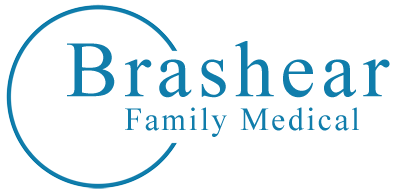September is Cholesterol Education Month! Children, young adults and older Americans can all have high cholesterol. This is a good time to get your blood cholesterol checked and take steps to lower it if it is high. This month is also a good time to learn about lipid profiles and about food and lifestyle choices that help you reach personal cholesterol goals. Therefore, we will explain what cholesterol is and how to know if yours is high.
Cholesterol Education Month
What is Cholesterol?
Cholesterol is a waxy, fat-like substance in your body and many foods. Your body needs cholesterol to function normally and makes all that you need.
However, too much cholesterol can build up in your arteries Over time, these deposits narrow your arteries. As a result, this can put you at risk for heart disease and stroke.
How Do You Know if Your Cholesterol is Too High?
Typically, high cholesterol does not exhibit any symptoms. Therefore, many individuals do not know that their cholesterol levels are too high.
Fortunately, our doctors here at Brashear Family Medical can perform a simple blood test to check your cholesterol. You can control high cholesterol through lifestyle changes or if it is not enough, through medications.
It is essential to check your cholesterol levels. This is because high cholesterol is a significant risk factor for heart disease, which is the leading cause of death in the United States.
How Often Should You Have Your Cholesterol Checked?
According to the National Cholesterol Education Program (NCEP), adults 20 years or older need to have their cholesterol checked every 5 years.
While preventative guidelines for cholesterol screening among young adults differ, experts agree on the need to screen young adults who have other risk factors for coronary heart disease. This risk factors can include the following:
- obesity
- smoking
- high blood pressure
- diabetes
- family history
Unfortunately, less than half of young adults who have these risk factors don’t receive cholesterol screenings even though up to a quarter of them have high cholesterol.
A lipoprotein profile is a simple blood test to measure your total cholesterol levels, including LDL (low-density lipoprotein, or “bad” cholesterol), HDL (high-density lipoprotein, or “good” cholesterol), and triglycerides.
The following chart shows optimal lipid levels for adults.
Desirable Cholesterol Levels
| Total Cholesterol | Less than 170 mg/dL |
|---|---|
| Low LDL (“bad”) cholesterol | Less than 110 mg/dL |
| High HDL (“good”) cholesterol | 35 mg/dL or higher |
| Triglycerides | Less than 150 mg/dL |
Can Children and Adolescents Have High Cholesterol?
High cholesterol can develop in early childhood and adolescence. In addition, your risk increases as your weight increases. More than 20% of youth aged 12-19 years have at least one abnormal lipid level in the United States. Therefore, it’s essential for children over 2 years of age to have their cholesterol checked if they any of the following apply to them:
- overweight/obese
- family history of high cholesterol
- family history of heart disease, diabetes, high blood pressure or certain condition
These are just the basics to educate yourself during Cholesterol Education Month. For more information or to schedule an appointment with your doctor here at Brashear Family Medical, contact us with the link below!

